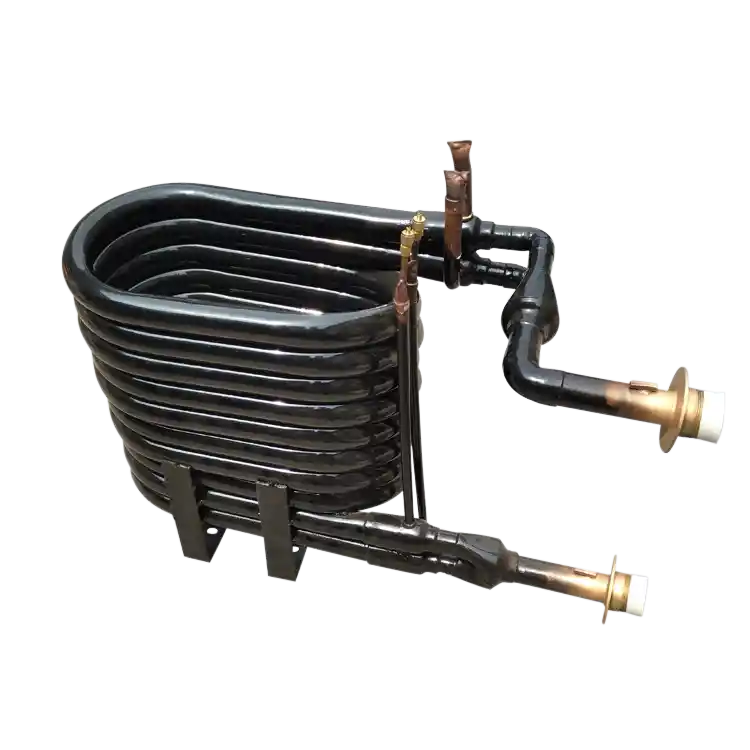Introduction
In this article, we will explore the application of coaxial heat exchangers in the chemical industry. Coaxial heat exchangers play a crucial role in optimizing heat transfer and temperature control in chemical processes, improving efficiency, safety, and product quality.
1. Understanding Chemical Processes
Chemical processes involve a wide range of reactions, separations, and transformations. Coaxial heat exchangers find utility in the chemical industry by facilitating efficient heat transfer between fluids, enabling precise temperature control, and enhancing overall process performance.
1.1 Importance of Heat Transfer in Chemical Processes
Efficient heat transfer is essential in chemical processes to facilitate reactions, maintain optimal operating conditions, and maximize process efficiency. Coaxial heat exchangers offer effective heat transfer solutions, allowing for precise temperature regulation and improved process performance.
1.2 Role of Coaxial Heat Exchangers in Chemical Processes
Coaxial heat exchangers play a vital role in optimizing chemical processes in several ways:
| Benefits | Descripción |
|---|---|
| Enhanced Heat Transfer | Coaxial heat exchangers provide efficient heat transfer between fluids, allowing for faster reactions and improved process efficiency. |
| Temperature Control | By regulating the heat exchange between fluids, coaxial heat exchangers enable precise temperature control, ensuring consistent and optimal process conditions. |
| Corrosion Resistance | The corrosion-resistant materials used in coaxial heat exchangers make them suitable for handling corrosive chemicals, ensuring durability and longevity. |
| Thermal Separation | Coaxial heat exchangers allow for effective thermal separation between different process fluids, preventing cross-contamination and maintaining product integrity. |
| Compact Design | The compact and space-saving design of coaxial heat exchangers makes them ideal for installations with limited space availability. |
2. Applications of Coaxial Heat Exchangers in the Chemical Industry
Coaxial heat exchangers find diverse applications in the chemical industry, contributing to improved efficiency, safety, and product quality.
2.1 Chemical Reactors
Coaxial heat exchangers are utilized in chemical reactors to control and optimize reaction temperatures. They facilitate efficient heat transfer, ensuring rapid and uniform heat distribution within the reactor, leading to improved reaction rates and product quality.
2.2 Distillation and Fractionation
In distillation and fractionation processes, coaxial heat exchangers play a critical role in separating and purifying chemical compounds based on their boiling points. They enable efficient heat transfer for vaporization and condensation, improving separation efficiency and reducing energy consumption.
2.3 Heat Recovery Systems
Coaxial heat exchangers are employed in heat recovery systems to capture and utilize waste heat generated during chemical processes. They recover heat from high-temperature streams and transfer it to preheat incoming feed streams, reducing energy requirements and improving overall process efficiency.
2.4 Solvent Recovery
Coaxial heat exchangers are used in solvent recovery processes to condense and recover solvents from vapor streams. They enable efficient heat transfer, facilitating solvent condensation and separation for reuse or further processing, reducing waste and minimizing environmental impact.
2.5 Cooling and Refrigeration
Coaxial heat exchangers find applications in cooling and refrigeration systems in the chemical industry. They facilitate heat exchange between refrigerants and process fluids, enabling effective cooling and temperature control in various equipment and processes.
2.6 Chemical Storage and Transportation
Coaxial heat exchangers are utilized in chemical storage and transportation systems to control and regulate the temperature of stored or transported chemicals. They ensure the stability and integrity of chemicals, preventing unwanted reactions or degradation caused by temperature fluctuations.
Conclusion
Coaxial heat exchangers play a vital role in optimizing chemical processes in the industry. Their efficient heat transfer capabilities, precise temperature control, and corrosion resistance make them indispensable in a wide range of applications, including chemical reactors, distillation, heat recovery systems, solvent recovery, cooling, and chemical storage. By harnessing the benefits of coaxial heat exchangers, the chemical industry can enhance process efficiency, improve product quality, and achieve sustainable operations.


